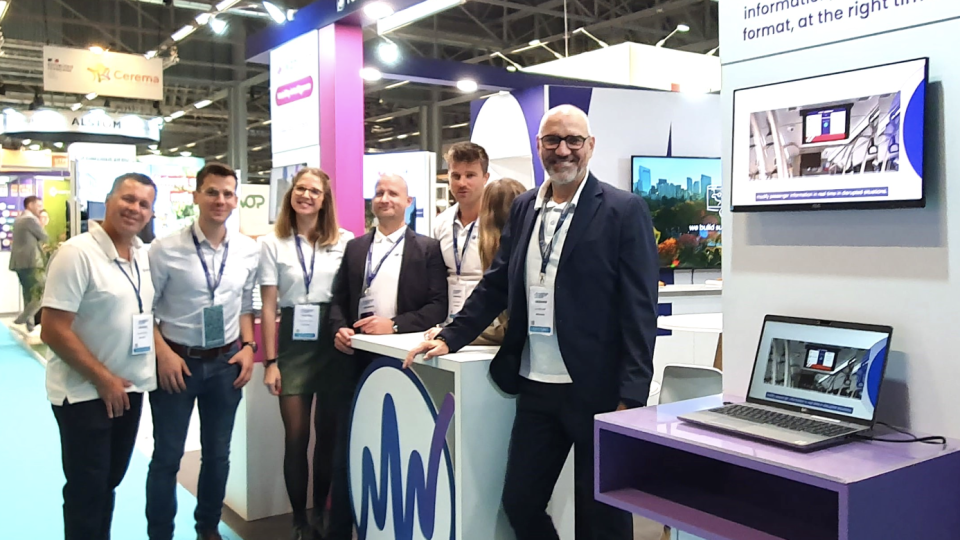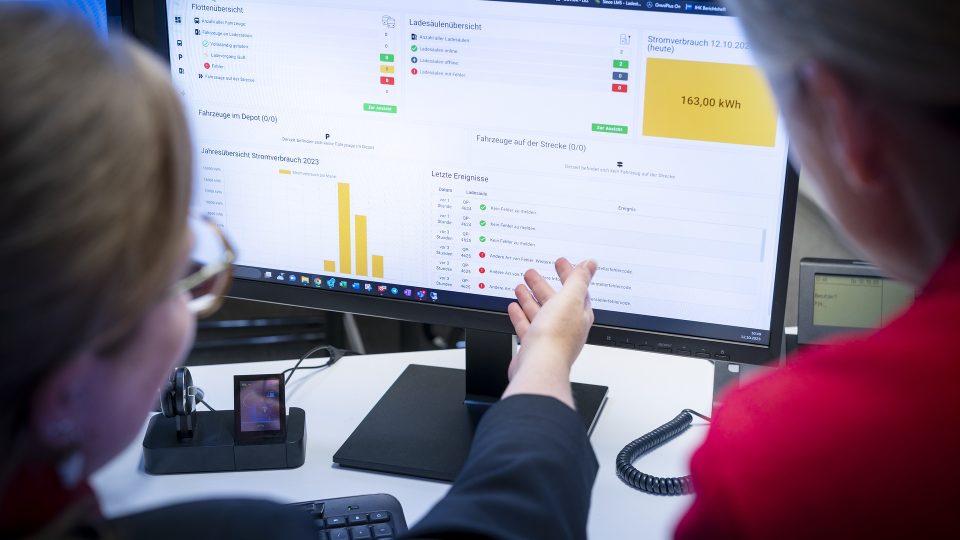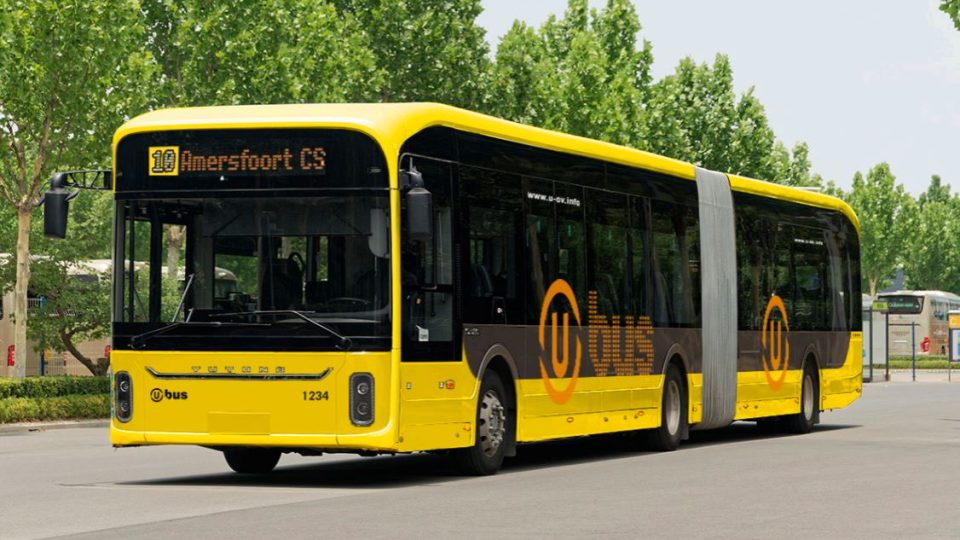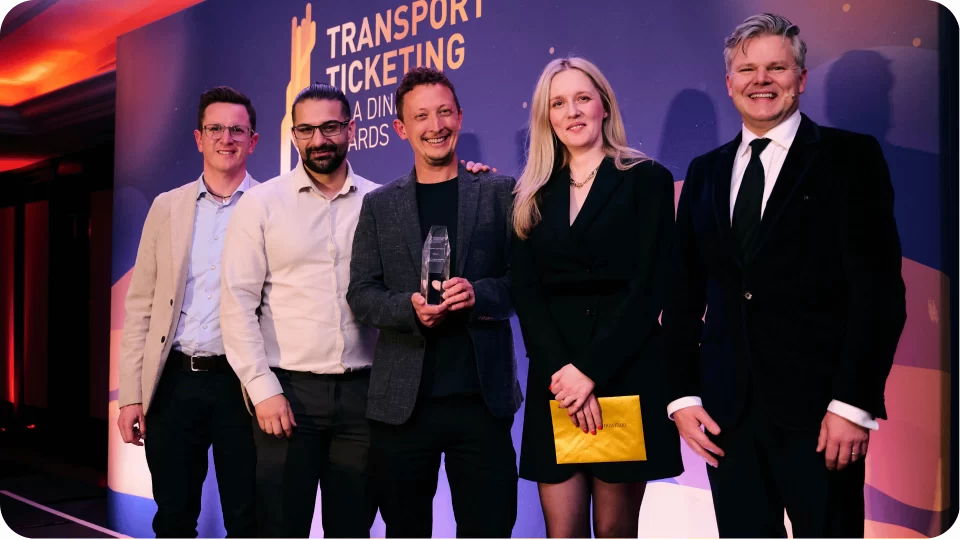Autonomous buses in public transport, what’s going on? An overview of projects, technology, challenges
Autonomous buses and autonomous shuttles: the technology is (almost) ready, the regulatory frameworks not yet, the public not even. But the autonomous bus pilots are multiplying, and several manufacturers already announced autonomous bus fleets launch within a couple years from now. In the meanwhile, short driverless shuttle buses operated in small private areas are not […]
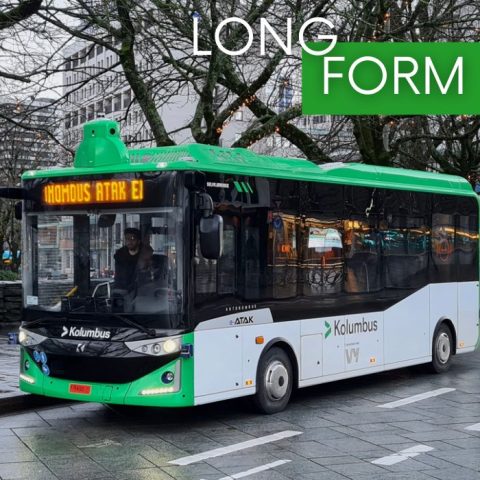
Autonomous buses and autonomous shuttles: the technology is (almost) ready, the regulatory frameworks not yet, the public not even. But the autonomous bus pilots are multiplying, and several manufacturers already announced autonomous bus fleets launch within a couple years from now.
In the meanwhile, short driverless shuttle buses operated in small private areas are not something new (we could mention, for instance, Navya and Easy Mile from the side of the industry, while ZF has been quite active in this concern).
However, the level of optimism about a progressive introduction of such technology is apparently decreasing. For sure, business case is not in place yet. And more than one prominent players in this field opted for a change of strategy (ZF, for instance) or faced challenging time in terms of financial stability (read: Navya).
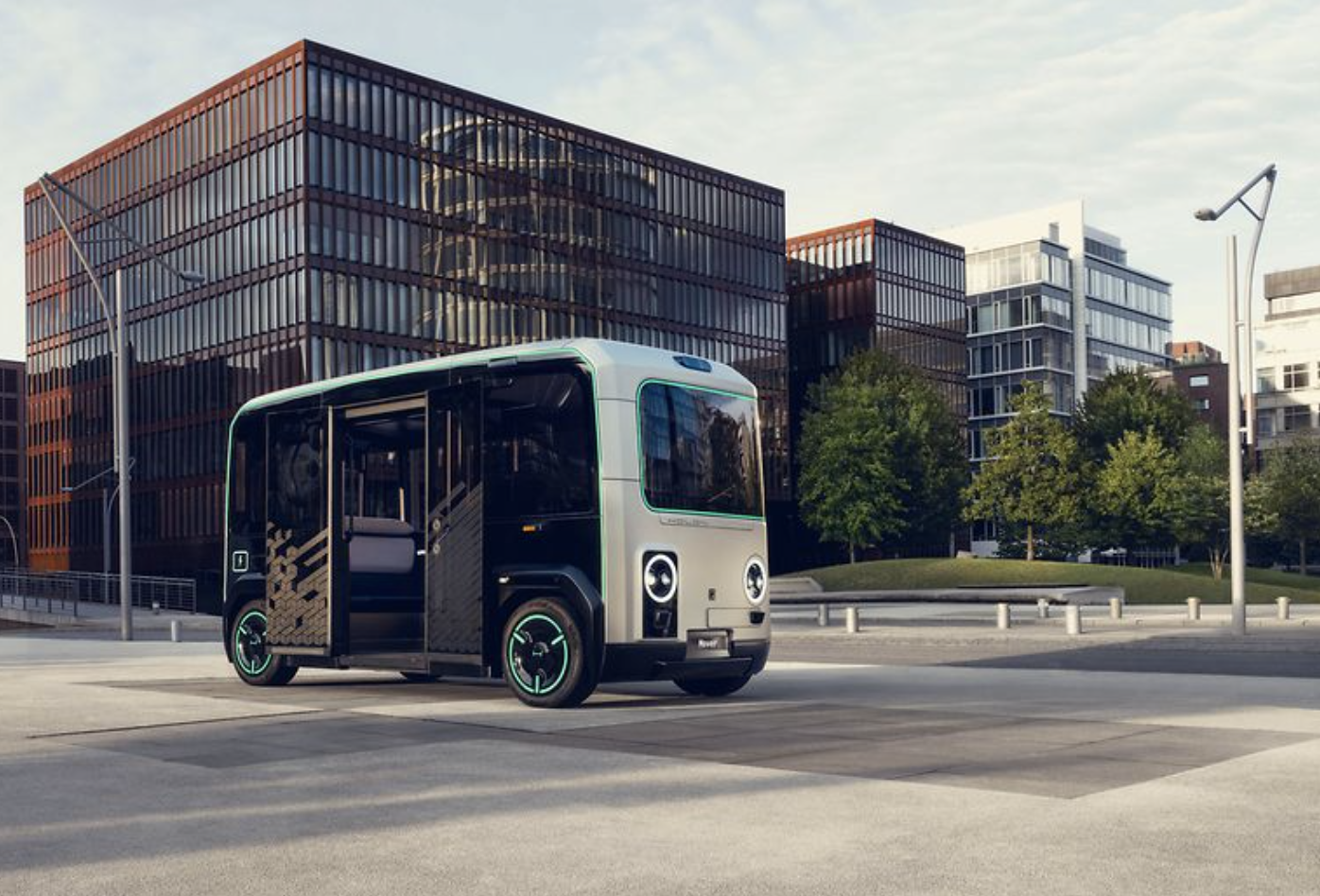
Is that a market proving to be less promising than expected? Maybe it’ll just take longer. In the meanwhile, the main project in Europe in terms of autonomous vehicles’ deployment in the public transport sector is that of Hamburg, where by 2030 there could be up to 10,000 autonomous shuttles on the road within ALIKE project, following an agreement between the Federal Ministry of Transport and the Hanseatic City of Hamburg (Holon Mover and Volkswagen ID.Buzz AD will be the first two vehicles to be tested). And the bus manufacturer primarily pushing this solution in Europe is for sure the Turkish Karsan.
Also worth noticing, as an example of the debates that the introduction of driverless technology might spark: in 2024, the drivers’ union Transport Workers Union (TWU), reached an agreement with the Ohio transportation authority (COTA), granting it veto power over autonomous vehicles. This new collective bargaining agreement stipulates that the drivers’ union must consent to the implementation of any form of autonomous driving technology.
Germany: market maturity in 2027
What is also clear is that Germany appears particularly interested in driverless bus adoption. The country public transport companies organization VDV welcomed in late 2024 the Federal Ministry of Transport’s strategy paper and called for an investment offensive for ‘Level 4’. Market maturity with the first combinations of vehicle and level 4 autonomous driving system in Germany is expected by 2027, according to the VDV.
“Then we need to guarantee four-digit purchase quantities by means of targeted funding from the new federal government as public transport for the industry so that the vehicles can also be produced in large numbers in Germany with the associated effects”, said VDV President Ingo Wortmann.
Karsan – Adastec: autonomous buses in the spotlight
In 2022 the Turkish Karsan provided in Norway the first normal size autonomous bus in operation in Europe. The Karsan Autonomous e-Atak is made driverless by Adastec’s flowride.ai Level-4 automated driving software platform and has been used since then on a city line, operated by Vy Buss, to transport passengers in the city of Stavanger.
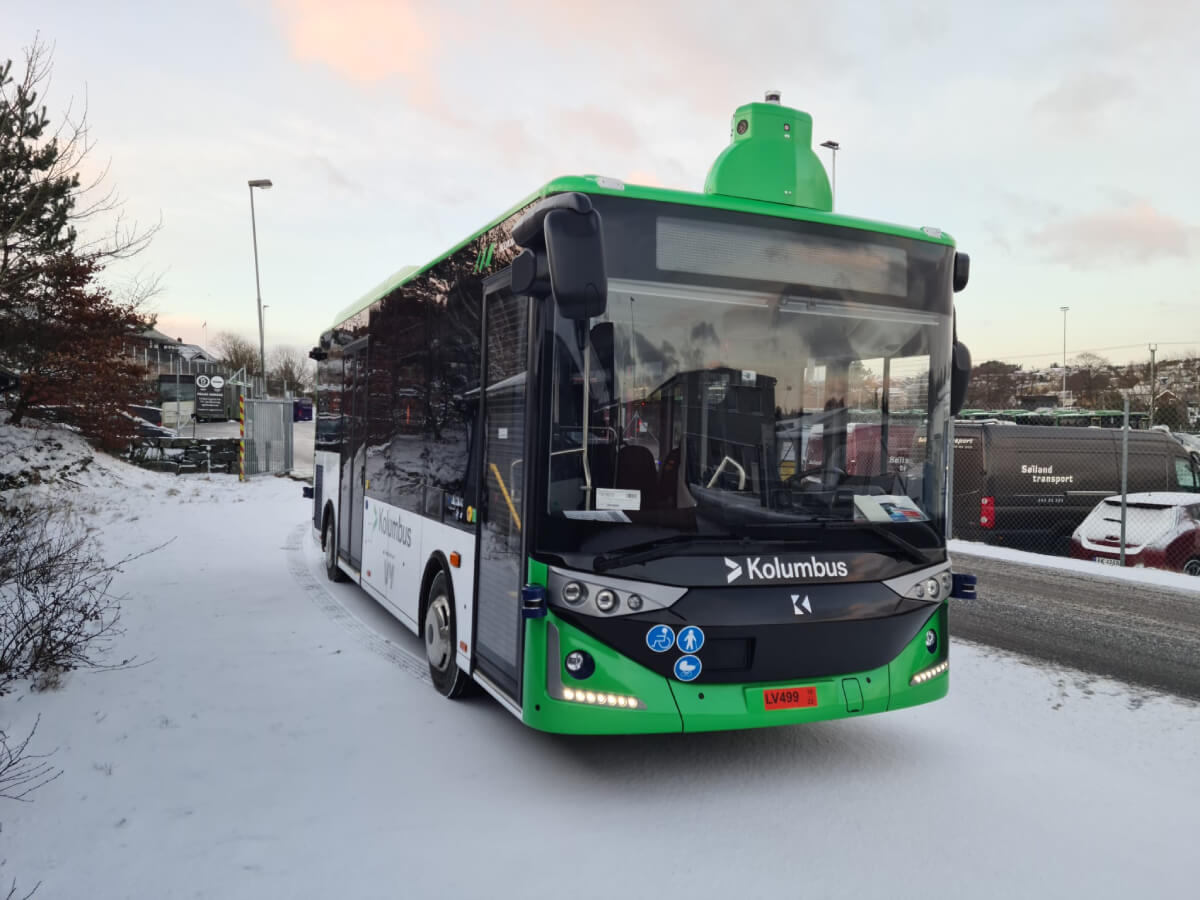
Two years of operation were achieved in March 2024. According to the OEM, the bus performed well on this route and in December 2023 was deployed on a much more challenging route with lane changes in heavy traffic and driving at higher speeds and a tunnel to pass through. Another project is live in Tampere, Finland. And Gothenburg will come from August 2025: the Karsan Autonomous e-Atak will operate on a line connecting Gothenburg Central Station to Liseberg train station. The project is financed by the Västra Götaland region. The bus will start running with passengers as part of Västtrafik’s network and the safety driver will remain at the driver’s seat.
What is interesting, in the Swedish project, the bus will use software from the Norwegian company Applied Autonomy, which is partner of Adastec in the driverless “journey” of Karsan.
The Autonomous e-Atak, which has driver assistance systems that go beyond ADAS functions, has advanced LiDAR sensors. These sensors work effectively at even the most critical angles for distances up to 120 meters by emitting laser beams, enabling three-dimensional detection of surrounding objects with centimeter accuracy. In addition, radio waves emitted by the front radar identify moving objects up to 160 meters in all weather conditions. Autonomous driving technology can easily navigate through roads and analyze traffic in addition to having situational awareness.
Adastec has a clear focus on manufacturing autonomous technology for buses. “We believe there’s a clear return on investment in the bus market – told us CEO Ali Ufuk Peker in March 2023 -. The operational costs are very high, so if we can lower those costs with automation and electrification, we can create revenue for the software and the technology – It’s an equation. In ADASTEC’s case, we will break even at around 200 buses. If we can handle between 50 and 100 million and end up with a product that saves money for bus fleets, then it’s a workable use case. This is exactly what ADASTEC aims to do – we focus on a specific area and share some of the financial burdens with the OEMs. By doing so, we can lower the amount of investment required.
MAN promise: autonomous bus in production by 2030
MAN and Mobileye join forces
According to MAN studies, TCO will drop down of 50% with autonomous buses – needless to say where savings are going to come from.
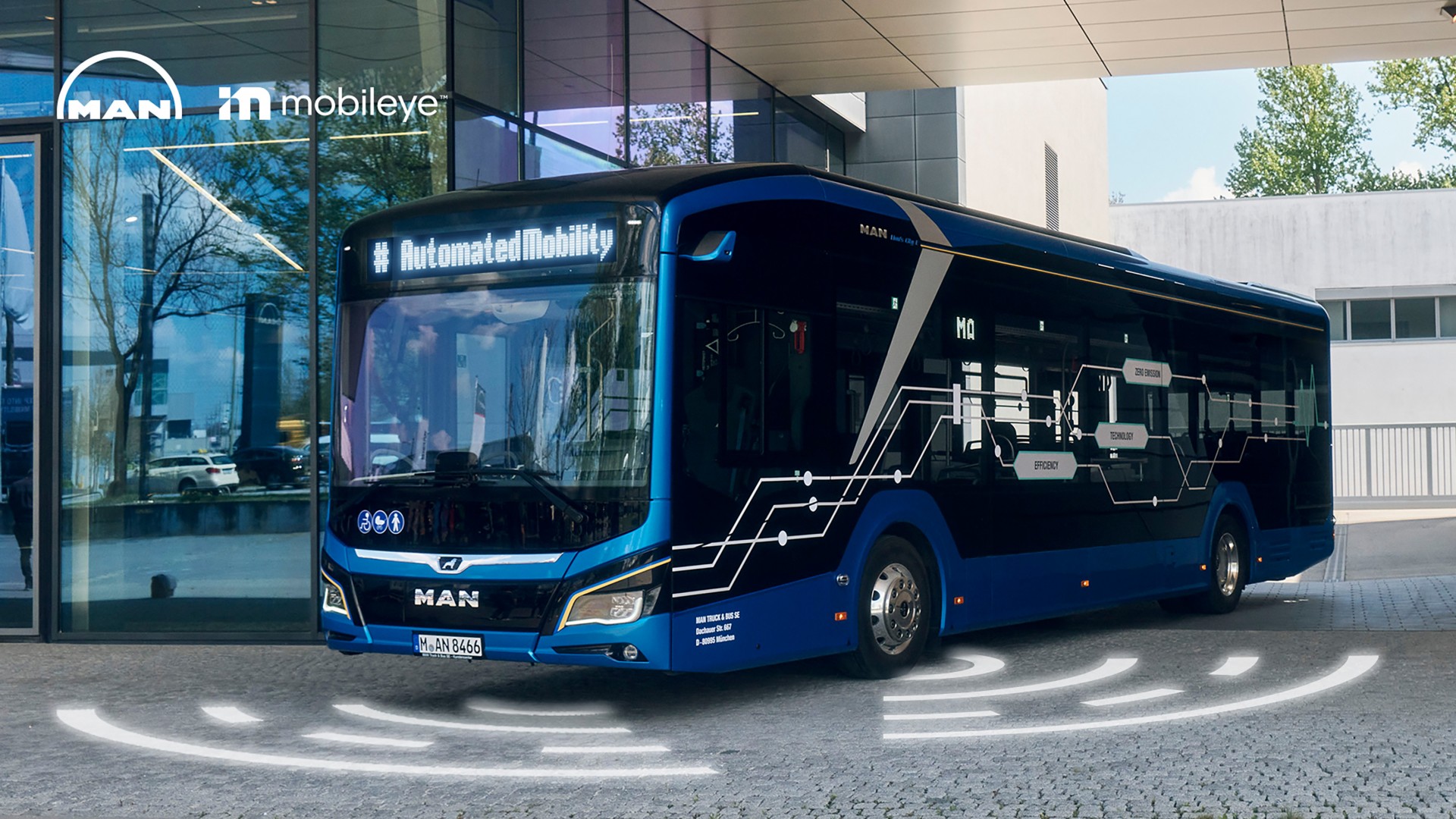
In May 2023 MAN announced it has entered a cooperation with Intel-owned Mobileye. Their first joint goal consists in launching pilot operation of the first automated city bus with a safety driver from 2025 as part of the MINGA research project in Munich.
MAN Truck & Bus is planning further pilots in actual customer use and, in perspective, full series production by the end of the decade. Michael Roth, Head of Product Strategy Bus at MAN Truck & Bus, in February spoke about the future of autonomous buses and the challenges of implementing the technology at the VDV Conference and ElekBu exhibition in Berlin.
BeIntelli project live in 2024
In the meanwhile, in spring 2024 MAN‘s “BeIntelli” project went live in Berlin. Developed with the Technical University of Berlin and IAV GmbH, the programme introduced intelligent traffic systems with autonomous vehicles in the city center.
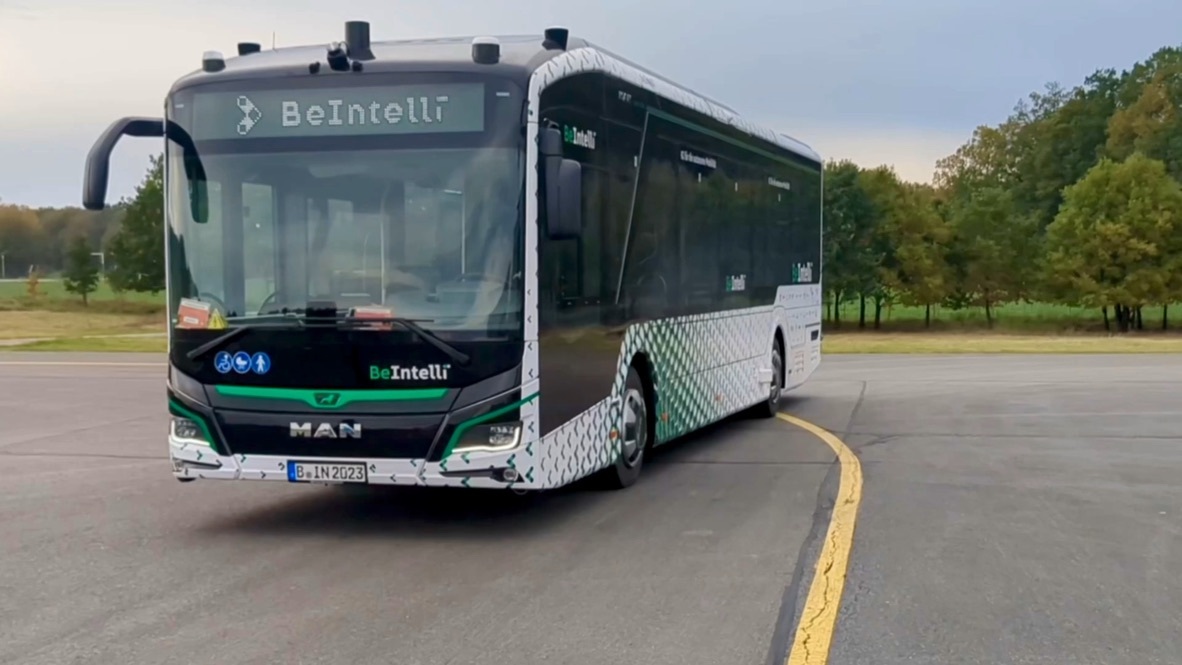
BeIntelli project’s core is an “explanatory bus,” an autonomous electric vehicle equipped with an Automated Driving System from TU Berlin. “In the heart of the city, one of our all-electric buses will be driving on its own on a digitalized test track between Adenauer Platz and Ernst-Reuter-Platz towards Brandenburger Tor”, MAN stated on Linkedin.
The bus, based on a Lion’s City E model, will be equipped with an Automated Driving System (ADS) developed by the BeIntelli project partners DAI-Lab (belonging to Berlin’s TU University) and GT-ARC and is further supported by the Center for Tangible AI and Digitalization.
The bus will serve as a digitalized hub, incorporating screens to visually explain driving skills and technologies to passengers.
ZF: the focus of autonomous buses… until 2023
In 2018 ZF entered a partnership with e.GO Mobile focused at developing the electric shuttle (eventually driverless) e.GO Mover under the umbrella of the newly founded e.GO Moove GmbH joint venture (ZF owns 40 per cent).
In April 2022 ZF announced it has acquired a 6% stake in StradVision, a South Korean pioneer in artificial intelligence based vision processing technology for autonomous vehicles and ADAS systems.
Driverless technologies for commercial vehicles have for some time been among the focus of ZF Commercial Vehicles division, launched July 2021 and headed by Wilhelm Rehm. He said: «In line with ZF’s ‘Next Generation Mobility’ strategy, the division will also help ZF leapfrog towards market leadership in e-mobility, vehicle operating systems, autonomous driving and digitalization».
In early 2023 ZF has unveiled its next generation autonomous shuttle. They claim it is built for operations “in urban environments and mixed traffic” and features Level 4 capabilities. It is developed in cooperation with U.S. mobility services provider Beep.
However, in early 2024, the group announced a significant shift, with the decision to refrain from producing autonomous shuttles and instead focus on its role as a provider of autonomous driving technology and engineering services.
Navya, the takeover
In mid-2021 Navya has been awarded 7.5 million euros of subsidies (mainly non-repayable) to pilot four high-tech projects, three of which are part of the Government initiative ‘France Relance’ program. One of them has the goal of developing and industrializing an autonomous bus based on the Bluebus electric bus. The initiative is led by a consortium composed of Actia, Bluebus and Keolis.
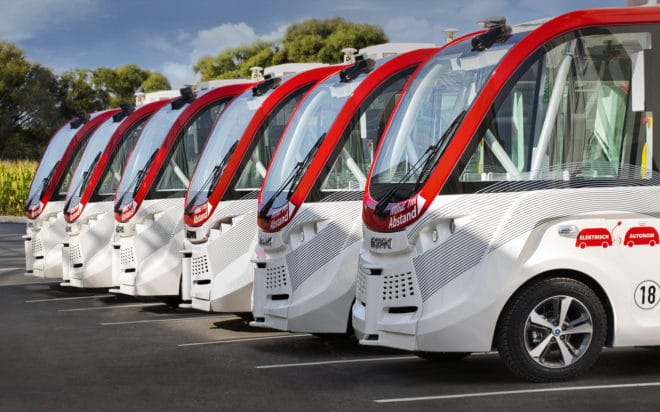
Navya states it has filed for cessation of payments with the Commercial Court of Lyon on 25th January 2025. The stock price of Navya on the Paris Stock Exchange had dropped significantly in the previous years. It was over 7 euros in 2018, at the time of the debut on Paris Stock Exchange, then had a peak of 4 euros in late 2020. From then, the decrease had been constant: on the day the company requested the suspension of its listing (24th January), Navya shares had a value of 3 cents.
Then, in 2023, the company was taken over by a joint venture between the engineering company Gaussin and the Japanese group Macnica, that debuted at Busworld 2023 under the denomination of GAMA.
Volvo, an autonomous bus (concept) presented in 2021
A bus that can move electrically and independently, without driver on board, within the depot? It’s already here. Volvo Buses in November 2019 has held a live demonstration of a 7900 Electric city bus equipped for autonomous driving.
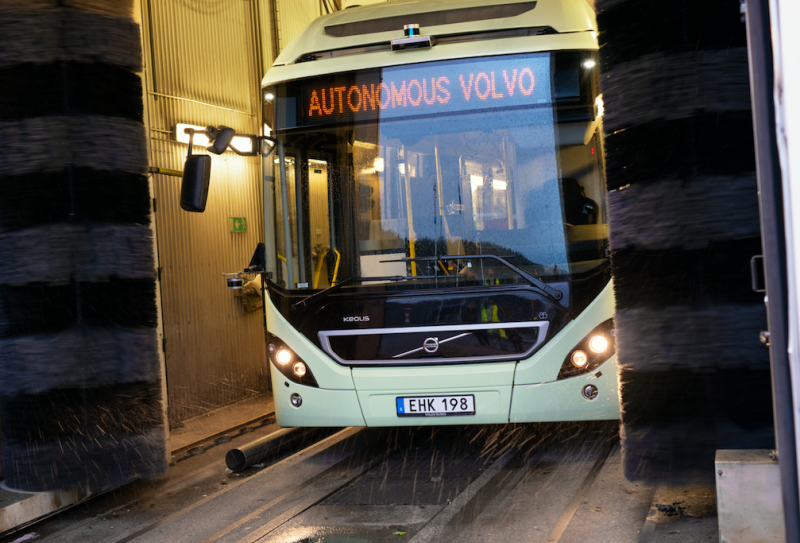
The demonstration took place in cooperation with Keolis in a depot just outside Gothenburg, in Sweden: the vehicle successfully moved between the parking lot and several workstations, including washing, maintenance and electric charging, before parking in the correct location, all with passengers on board.
The first driverless pilot in Singapore
Volvo Buses showcased its first autonomous bus concept in Singapore in March 2019. The vehicle, based on a Volvo 7900 electric bus modified for driverless operation, is the outcome of the cooperation between Volvo and Nanyang Technological University (NTU). The first demonstration took place indeed in Singapore. The Volvo bus will soon begin trials on the NTU campus.
The autonomous bus concept bus has been equipped with sensors and navigation controls that are managed by a comprehensive artificial intelligence (AI) system, Volvo pointed out in a press release. Previously, Volvo Buses had showed the driverless bus concept to a selected public in Sweden in June 2018, during the Volvo Ocean Race competition in Gothenburg (Sweden).
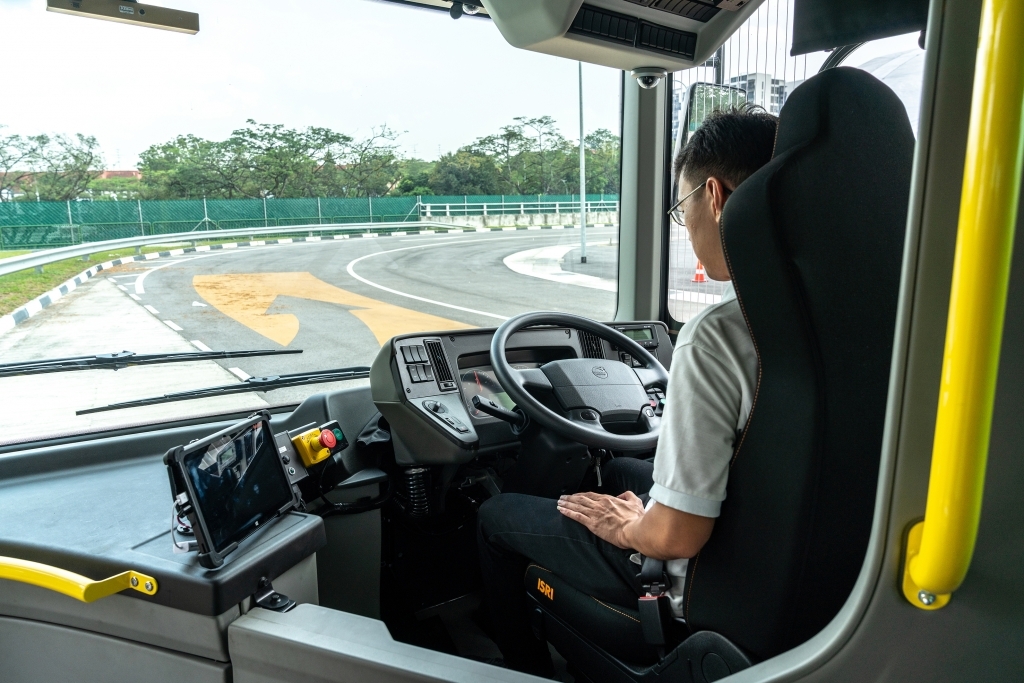
Autonomous driving support when docking
In September 2021 Volvo Buses released it is testing a new concept for autonomous driver support, which consists in a system that assists the driver in situations that require high precision and safety, such as approaching and stopping at a bus stop. The system regulates the bus’s speed and steers automatically, allowing the driver to focus on what is happening around the bus.
The Swedish group has also released a study with Chalmers University of Technology claiming that bus drivers show high level of appreciation for autonomous driver support systems that enable buses to dock at bus stops. However, considering the major change of strategy decided by the brand in 2023, with the stop of production of complete buses in Europe, is unclear how the driverless strategy will evolve.
Scania autonomous buses are on their way
Nobina to deploy Scania autonomous buses in Stockholm
Remaining focuses on Swedish manufacturers, Scania announced a trial of autonomous buses on regular routes that will be carried out by Nobina in the Stockholm area with two vehicles starting from 2020. In the spotlight there will be the Citywide Electric, the first electric bus ever developed by Scania, that is completing a pilot period in Östersund (Sweden).
Nobina is the largest public transport operator in the Nordic countries. The autonomous bus trial with Scania will be conducted in two stages, initially without passengers before welcoming commuters onboard. Safety being a top priority throughout the trials, the buses will have a safety-driver to monitor operations and assist passengers (a common feature to all the autonomous bus pilots we are reporting about).
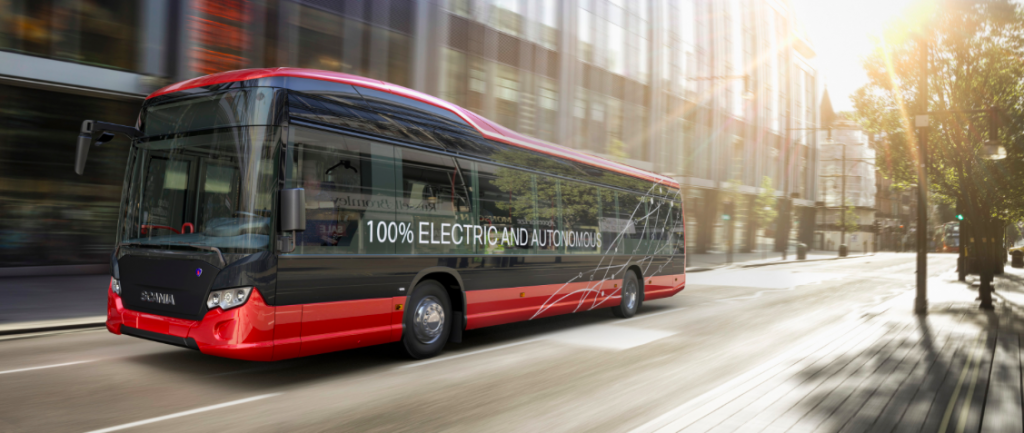
In the framework of the pilot, two Scania Citywide LF electric buses will connect the rapidly expanding new residential area Barkarby (where several innovative public transport projects are already under way, as BRT infrastructure and new digital solutions), approximately 20 kilometres from downtown Stockholm, with a nearby metro station. Charging operations will be executed in depot overnight.
Scania looks at Chinese driverless future. With Haylion Technologies
It dates back to April 2018 the partnership between Scania and Haylion Technologies, a company committed in the development of solutions for the Chinese transport sector, with a focus on autonomous driving, electrification and connectivity. The two companies will work together in order to accelerate the commercialization of autonomous transport applications and the transition towards a sustainable transport system.
Since the end of 2017, Haylion Technologies has been testing autonomous buses on public roads with the Shenzhen Bus Group.
However, considering the major change of strategy decided by the brand in 2023, with the stop of production of complete buses in Europe, is unclear how the driverless strategy will evolve.
ADL and Stagecoach performing autonomous bus fleet in Scotland
In 2023 another project on autonomous buses has been launched in Scotland, as announced by partners Alexander Dennis and Stagecoach. In this case, the vehicles deployed will be diesel buses. The project, supported by UK government with £4.35 million, is based on the cooperation between several partners: Stagecoach and Transport Scotland, the manufacturer Alexander Dennis Limited and the technology company Fusion Processing.
Five driverless Enviro200 buses have been carriying people between Fife and Edinburgh through the Forth Road Bridge. Project was finally kicked-off in May 2023.
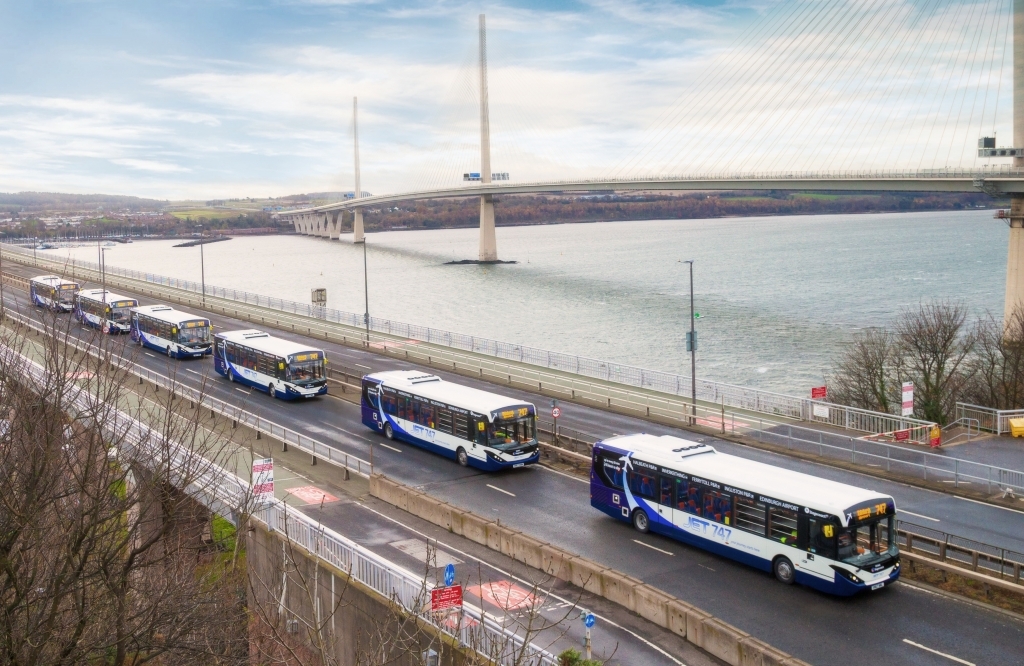
It is worth mentioning that the same network of partners already started to work jointly to experience autonomous bus operations in the depot, being the smart depot, where buses move in driveless mode for parking and being washed, one of the first kind of application of autonomous bus that could become reality.
However, in December 2024, it was announced that CAVForth autonomous bus project was set to end on 14 February 2025 and will not be renewed following its already planned deadline, as passenger numbers have been lower than those aimed.
Alexander Dennis also announced in May 2024 that it was going to build three Enviro100AEV autonomous buses for the consortium delivering the Connector project in Cambridge.
Iveco autonomous bus, from the smart garage to the roads
Iveco and EasyMile to launch an autonomous bus in 2021
Iveco autonomous bus prototype is taking the floor in early 2021. It is being developed in the framework of STAR project and thanks to a wide range of partnerships between Iveco Bus and a group of companies and laboratories. The main partner is anyway EasyMile, a French company that already developed and presented a driverless electric shuttle (they were present at UITP Summit 2019 as well). The news was announced by Iveco in late June 2019.
Iveco Bus is equipping its prototype with electronic components and sensors. EasyMile, a world leader in intelligent mobility solutions, is providing its technology as well as its experience in platform integration, deployment and autonomous vehicle fleet management.
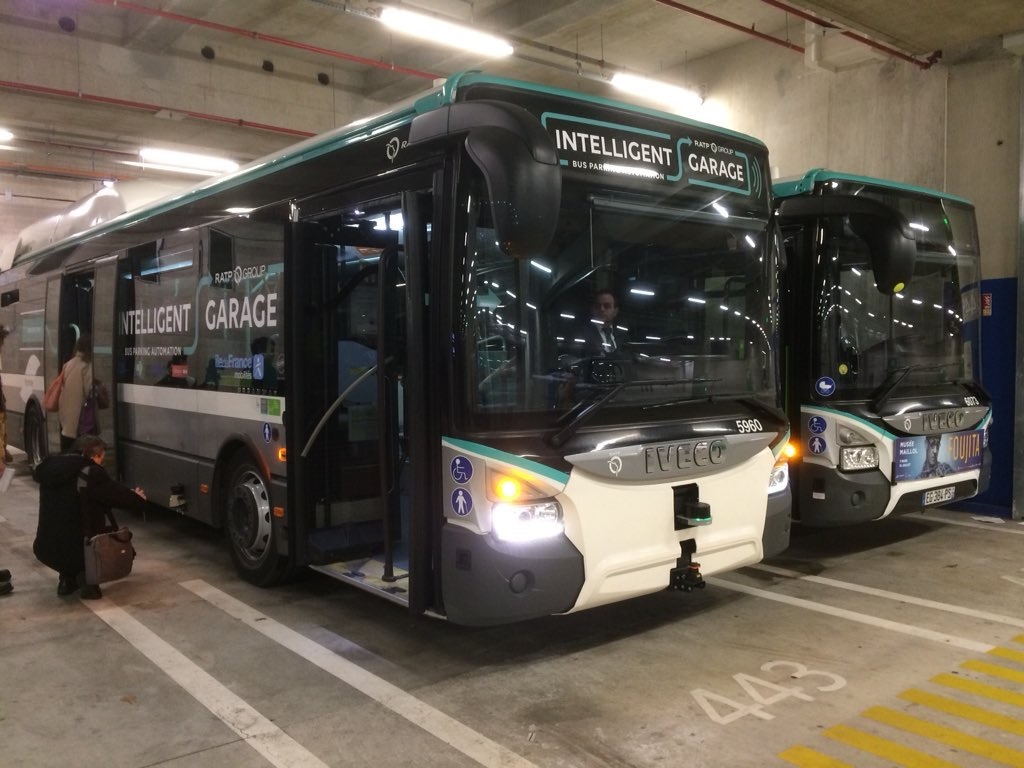
Iveco Bus, the smart depot bus in Paris
To date, the experience of Iveco Bus in autonomous bus operations was already proved by the smart depot’ pilot held in Paris in spring 2018 with an Iveco Urbanway. The principle is that buses, equipped with sensors, park themselves in the depot, without human involvement. This offers the advantage of a quicker manoeuvre, saving time and space: the vehicle drives itself, optimising the space available, on entering and exiting the depot. Refuelling and washing can also be carried out in full autonomy.


